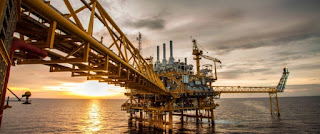There are no solutions to complex problems – except when the problem becomes so complex it must have a simple solution.
That is the paradox thrown up by global warming and the shattering report of the U.N. Intergovernmental Panel on Climate Change. The report cries out for dramatic, simple remediation of the amount of carbon pumped into the atmosphere every day by industrial society.
The complex solution is a case-by-case, country-by-country, industry-by-industry, polluter-by-polluter remediation: power plants, automobiles, trucks, trains, ships, aircraft, and manufacturers.
The simple solution to this complex problem is to tax carbon emissions: a carbon tax. Make no mistake, it would be tough. Some industries would bear the brunt and their customers would carry the burden -- initially a light burden growing to a heavier one.
The obvious place to start is with electric utilities. Those burning coal would get the heaviest penalty. Those burning natural gas – the fuel favored by its low price and abundance in the nation -- some penalty, but not as heavy.
Nuclear, which is having a hard time in the marketplace at present, would be the big winner of the central station technologies, and solar and wind would continue to be favored.
When it comes to transportation and farming, the pain of carbon taxation rises. The automobile user has choices like a smaller car, an electric car or simply less driving. But heavy transportation, using diesel or kerosene, is where the pain will be felt: buses, trucks, tractors, trains, aircraft, and ships. The burden here is direct and would push up prices to consumers quickly.
Jets are a particularly vexing problem. Although they represent about 3.5 percent of pollution, it is the altitude at which they operate (above 30,000 feet) that makes them particularly lethal greenhouse gas emitters.
A carbon tax must be introduced gradually but firmly so that technology and alternatives have a chance of coming to the rescue. Some things, like airline tickets, will just cost more before manufacturers improve engines and work on new propulsion. Farming will he hard hit, and farmers may have to get rebates.
Read more at How a Carbon Tax Would Be Implemented

No comments:
Post a Comment